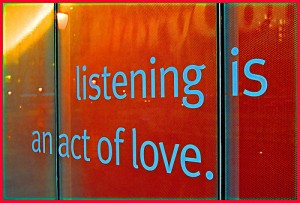 Chapter 1: Noticing Smarter: Researching What We Don’t Know
Chapter 1: Noticing Smarter: Researching What We Don’t Know
In this section, Barnhouse reminds us that our role in teaching reading is to teach the reader not the reading, the thinker and not the thoughts. We must, she contends, shift our attitudes when we approach reading conferences from thinking of ourselves as the teachers who are supposed to know to the teachers who are supposed to discover (p.13). Starting conferences side by side with readers with questions we truly want to hear the answers to, ones we don’t already know the answers to, might be a place to start refreshing our thinking on conferring.
Join Our Book Club Conversation
-To what extent do you agree with Barnhouse’s claims that the barriers to our truly listening to students exist in our mental models of conferring as teaching as correcting, teaching the text, and teaching as evaluation (pp. 22-23)? How do we remove whatever barriers exist between us and listening deeply to our students’ thinking?

Yes, interesting perspective because each reader has strengths, and the only way we can build on those strengths is to witness their processing. Also, by truly listening, the teacher can model areas to help build the reader’s comprehension, fluency, and/or vocabulary. All readers have certain aspects in common, but each has a particular way to make meaning that may be unique
Donna, your listening to students’ thinking as well as providing them with the opportunity to express their thinking to others (through your blog and through your work with university tutors) is one of the reasons your classroom is such a powerful place for students to be. Thanks for sharing your thinking! Can’t wait to hear more about how your year is going at KHS.
I think the challenge Barnhouse here raises is a tough one for a few reasons. As educators, there is a pressure to have the answers, anticipate any student misconceptions, and redirect accordingly. All of those pressures (whether real or perceived) lead many of us to lead conferences in a prescriptive way – seeking out the ‘perfect’ answer instead of looking for the ‘perfect teachable moment.’ Those teachable moments are only revealed to us if we sit in that moment alongside our eager reader and truly listen – without an agenda. I loved what Barnhouse suggested about not being an expert on the text you are conferencing on, because having gaps in your own understanding will lead you to be an information seeker instead of an information giver.
As I prepare to lead one of our buildings through an adult collaborative conversation re: Guided Reading Best Practices and T/S Conferencing, this chapter is encouraging me to rethink my plans!
Ooh! This sounds awesome. I’d love to learn more about what touchstone texts you might consider using for your conversation around conferring. I feel like this book is powerful for us since it connects to our work around Calkins’ conferring in our writing units of study. I have seen lots of other great resources, too, and I’m not yet sure which ones might prove the most fruitful. I’d love to find time to chat with you at our next meeting!
I also wanted to share that I will be launching my next collaborative conversation with my staff by asking for a stop-and-jot reflection on the following quote from this chapter:
“We are told in direct and indirect ways that we have to cover rather than uncover material, talk rather than listen. The know-and-tell teacher inside of us steps forward and replaces the researcher, the discoverer, the one who doesn’t know -yet.”
This speaks to the question Kerry poses above and I look forward to challenging my team to think through how they can actively combat that consuming reaction just as we are here in this thread.
Love this! It is a very real challenge, particularly in a time when we have the ever-looming MAP/EOC testing at the end of the year. To shift our perspective from covering to get to something to uncovering to get at real understanding seems key. I’ll be interested to learn more about your teachers’ real and perceived hurdles to acting as discoverers.